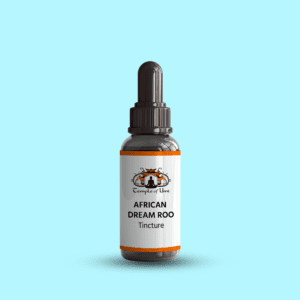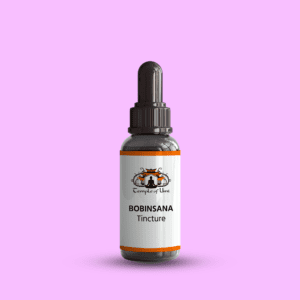Ayahuasca for depression

By Temple of Umi

Table of Contents
Dive into the transformative potential of ayahuasca for depression. Understand its historical roots, scientific studies, and how it compares with traditional treatments. Navigate the journey safely with our comprehensive guide.
Introduction
Ayahuasca, a term that sparks both curiosity and reverence, refers to a traditional Amazonian brew with potent psychoactive properties. This concoction, deeply rooted in the indigenous cultures of the Amazon basin, is made from the Banisteriopsis caapi vine and the Psychotria viridis leaf. The former contains monoamine oxidase inhibitors (MAOIs), while the latter is rich in N, N-Dimethyltryptamine (DMT), a powerful hallucinogenic compound. Together, they create a beverage used for centuries in ceremonial contexts aimed at spiritual awakening and healing.
In recent years, ayahuasca has garnered significant attention beyond its traditional realms, particularly in the field of mental health. Anecdotal evidence and a growing body of research suggest that ayahuasca may offer potential benefits for treating various psychiatric disorders, including depression. This surge in interest has led to a global dialogue about the brew’s therapeutic possibilities, prompting scientific curiosity and cautious optimism.
However, it’s crucial to approach ayahuasca with an understanding of its complexity, both legally and health-wise. The legality of ayahuasca varies worldwide, with it being illegal in some countries due to its DMT content. Additionally, the psychoactive experience it induces requires careful consideration and respect for safety protocols. Individuals need to research and understand these aspects thoroughly before considering ayahuasca as a treatment option.
Understanding Depression
Depression, a disorder that affects millions globally, is characterized by persistent sadness, a lack of interest in activities once enjoyed, and an overwhelming sense of despair. Symptoms can range from moderate to severe and may include changes in appetite, sleep disturbances, fatigue, and feelings of worthlessness or guilt. This mental health condition goes beyond occasional sadness, impacting daily functioning and quality of life.
Traditional treatments for depression typically involve a combination of medication and therapy. Antidepressants aim to balance brain chemicals that regulate mood, while counseling or psychotherapy addresses behavioral patterns, thoughts, and emotional challenges contributing to depression. Despite the availability of these treatments, many individuals continue to struggle with depression, partly due to the limitations and side effects associated with conventional methods.
Ayahuasca: The Amazonian Psychedelic
Ayahuasca’s roots trace back to the indigenous tribes of the Amazon, where it has been a cornerstone of spiritual and healing practices for centuries. The brew’s significance extends beyond its psychoactive effects, encompassing deep cultural and spiritual dimensions. It’s used in ceremonies led by experienced shamans, who guide participants through the intense experiences that ayahuasca can induce.
The key components that give ayahuasca its unique properties are DMT, a compound that produces profound psychedelic experiences, and MAO inhibitors, which allow DMT to be orally active. This combination facilitates experiences that users describe as life-changing, including intense visual hallucinations, emotional revelations, and a sense of interconnectedness with the universe.
Traditionally, ayahuasca is prepared by boiling or soaking the Banisteriopsis caapi vine and Psychotria viridis leaves. This process, often taking several days, is carried out with specific intentions and prayers, imbuing the brew with spiritual significance. The preparation and consumption of ayahuasca are integral to its therapeutic potential, emphasizing the importance of set, setting, and guidance from experienced practitioners.
This overview of ayahuasca’s origins, its increasing consideration in mental health contexts, and its traditional use highlight the complexities surrounding this ancient brew. As interest continues to grow, so does the dialogue about its potential benefits, legal status, and safety considerations, underscoring the need for informed and respectful exploration of ayahuasca as a possible tool for healing and personal growth.

Scientific Perspectives on Ayahuasca for Depression
Overview of Research Studies on Ayahuasca’s Effects on the Brain
Ayahuasca, a traditional Amazonian brew with psychoactive properties, has captured the interest of scientists and researchers worldwide. Recent studies delve into how this potent mixture affects the brain, revealing that ayahuasca may facilitate unique neurological responses. These include increased neural plasticity, enhanced emotional processing, and reduced depressive symptoms. By activating serotonin receptors and stimulating brain regions associated with emotion and memory, ayahuasca presents a novel pathway for depression treatment, distinct from conventional methods.
Ayahuasca’s Potential Impact on Mood, Emotions, and Mental Health
The psychoactive components of ayahuasca, primarily DMT (N, N-Dimethyltryptamine), have shown promising effects on mood and emotional well-being. Participants in various studies often report a profound sense of clarity and emotional release following ayahuasca sessions, suggesting its potential to reset mental states. Research indicates that these experiences might contribute to long-lasting improvements in mood and mental health, offering hope for those with treatment-resistant depression.
- Mood Enhancement: Users frequently describe a significant uplift in mood, lasting weeks or even months post-session.
- Emotional Release: Ayahuasca facilitates a profound emotional catharsis, allowing individuals to confront and process underlying issues.
- Mental Health Improvement: Preliminary studies suggest sustained benefits in terms of reduced symptoms of depression and anxiety.
Comparing Ayahuasca’s Effectiveness with Traditional Antidepressants
Unlike traditional antidepressants, which often target specific neurotransmitters like serotonin, ayahuasca provides a comprehensive brain experience that can alter perception, emotion, and cognition. While SSRIs (Selective Serotonin Reuptake Inhibitors) work by gradually increasing serotonin levels to improve mood and anxiety, ayahuasca’s immediate and intense effect offers a different therapeutic potential. Although direct comparisons are complex due to the differing mechanisms of action, anecdotal and preliminary clinical evidence suggests that ayahuasca might offer a faster route to emotional healing for some, particularly those who have not found relief through conventional treatments.
Personal Testimonies and Experiences
Case Studies: Individuals’ Experiences with Ayahuasca for Depression
Personal stories and case studies provide compelling insights into ayahuasca’s impact on depression. Numerous individuals, having struggled with conventional treatment modalities, turn to ayahuasca as a last resort. Their accounts often highlight profound journeys of self-discovery and healing, marked by intense visual and emotional experiences that lead to significant shifts in perspective and reduction in depressive symptoms.
Positive Outcomes and Transformative Experiences
The narratives of those who have participated in ayahuasca ceremonies frequently underscore life-altering changes:
- Renewed Hope: Many describe emerging from the experience with renewed hope and purpose.
- Deep Self-Reflection: The intense introspection facilitated by ayahuasca can lead to a deeper understanding of one’s emotions and traumas.
- Lasting Change: Reports of lasting changes in mental health and outlook on life are expected, with some individuals experiencing relief from depression that persists long after the ceremony.
Potential Risks and the Importance of a Supportive Setting
While the benefits can be significant, the risks associated with ayahuasca should not be overlooked. The experience can be intense and sometimes distressing, emphasizing the need for a safe, supportive setting. Proper screening, guidance by experienced facilitators, and post-ceremony integration support are crucial to mitigate risks and enhance the therapeutic potential.
- Screening for Safety: Pre-screening for psychological and medical conditions to ensure participant safety.
- Guided Experience: The presence of experienced facilitators can provide necessary support during intense experiences.
- Integration Support: Post-ceremony support helps individuals process their experiences and integrate the insights into their daily lives.
Through the lens of both scientific research and personal testimony, ayahuasca emerges as a potent yet complex option for treating depression. Its unique ability to catalyze deep psychological and emotional transformations holds promise, warranting further research and cautious exploration.
Legal and Ethical Considerations
When considering ayahuasca as a treatment option, it’s vital to navigate the complex landscape of legal and ethical concerns that surround its use.
- The legal status of ayahuasca in various countries: Ayahuasca’s legality varies significantly around the globe. In countries like Brazil and Peru, ayahuasca ceremonies are legally protected under the guise of religious freedom. However, in many Western countries, the active ingredients in ayahuasca, such as DMT, are classified as controlled substances, making their use illegal outside of sanctioned studies. It’s crucial to research and understand the specific legal framework of your country before considering ayahuasca as a treatment option.
- Ethical concerns about the use of ayahuasca for treatment: The growing interest in ayahuasca for mental health treatment brings forward ethical dilemmas. These include concerns about the potential for exploitation of indigenous knowledge and resources, the safety and well-being of participants, and the adequacy of informed consent given the profound and often unpredictable effects of ayahuasca.
- The role of traditional ceremonies versus clinical settings: Ayahuasca has traditionally been used in ceremonial settings led by experienced shamans or healers. These settings often provide a supportive community and a spiritually enriching environment. However, there’s a growing trend toward clinical research settings aiming to understand ayahuasca’s therapeutic potential under controlled conditions. The ethical consideration here involves respecting traditional practices while ensuring participant safety and scientific rigor.
How to Approach Ayahuasca Treatment Safely
For those considering ayahuasca as a potential treatment for depression, approaching this option safely and responsibly is paramount.
- Guidelines for those considering ayahuasca for depression:
- Conduct thorough research on ayahuasca, including its effects, potential risks, and legal status.
- Consult healthcare professionals to discuss potential health risks or interactions with existing treatments.
- The importance of selecting reputable facilitators and centers:
- Choose facilitators or centers with a strong reputation, verified testimonials, and a clear commitment to safety and ethical practices.
- Ensure that they offer pre-session screenings, professional medical support during the session, and post-session integration support.
- Preparing mentally and physically for an ayahuasca experience:
- Follow dietary and health guidelines provided by the facilitator to prepare your body.
- Engage in introspection or counseling to mentally prepare for the potentially intense emotional and psychological experiences.

Final words
Ayahuasca presents a unique and profound option for treating depression, offering potential benefits that extend beyond conventional treatments. However, the path to ayahuasca treatment is fraught with legal, ethical, and safety considerations that must not be overlooked.
- Summarizing the potential of ayahuasca as a depression treatment: Ayahuasca could offer significant relief for those struggling with depression, providing deep psychological insights and emotional healing. However, its effectiveness and safety profile require further exploration through scientific research.
- There is a need for further research and understanding: Comprehensive studies are essential to harness ayahuasca’s potential while ensuring participant safety thoroughly. These studies aim to understand the mechanisms of action, optimal treatment protocols, and long-term effects of ayahuasca use.
- Encouraging a cautious and informed approach to exploring ayahuasca: While ayahuasca holds promise as a treatment for depression, individuals must approach it with caution, thorough preparation, and respect for its power and complexity. Always prioritize legal considerations, personal safety, and ethical practices in your exploration of ayahuasca for depression.
- Sacred Plant Medicine Retreats in Georgia
- 5 Ayahuasca Retreats in California Worth Exploring
- 7 Best Aya Retreats in America. Click here.
- Mcdonough Ayahuasca retreat
- Conley Ayahuasca retreat
- Whitesburg Ayahuasca retreat
- Brooks Ayahuasca retreat
- Gay Ayahuasca retreat
- Williamson Ayahuasca retreat
- Orchard Hill Ayahuasca retreat
- Glenn Ayahuasca retreat
- Luthersville Ayahuasca retreat
- Shady Dale Ayahuasca retreat
- Bowdon Junction Ayahuasca retreat
- Sargent Ayahuasca retreat
- Greenville Ayahuasca retreat
- Lovejoy Ayahuasca retreat
- Winston Ayahuasca retreat
- Rutledge Ayahuasca retreat
- Moreland Ayahuasca retreat
- Molena Ayahuasca retreat
- Lebanon Ayahuasca retreat
- Good Hope Ayahuasca retreat
- Haralson Ayahuasca retreat
- An Inclusive List of Psychedelic Quotes
- Mount Ayahuasca retreat
- Grantville Ayahuasca retreat
- Pine Lake Retreat near
- Rydal Ayahuasca retreat
- Porterdale Ayahuasca retreat
- Waco Ayahuasca retreat
- Temple Ayahuasca retreat
- Bethlehem Ayahuasca retreat
- Jenkinsburg Ayahuasca retreat
- Adairsville Ayahuasca retreat
- Red Oak Ayahuasca retreat
- Woodbury Ayahuasca retreat
- Cassville Ayahuasca retreat
- Redan Ayahuasca retreat
- North Decatur Ayahuasca retreat
- Grantville Ayahuasca retreat
- Hillsboro Ayahuasca retreat
- Jackson Ayahuasca retreat
- Braselton Ayahuasca retreat
- Zebulon Ayahuasca retreat
- Flovilla Ayahuasca retreat
- Auburn Ayahuasca retreat
- Warm Springs Ayahuasca retreat
- Scottdale Ayahuasca retreat
- Lithia Springs Ayahuasca retreat
- Villa Rica Ayahuasca retreat
- Grayson Ayahuasca retreat
- Sunny Side Ayahuasca retreat
- Senoia Ayahuasca retreat
- Locust Grove Ayahuasca retreat
- Chamblee Ayahuasca retreat
- Fairburn Ayahuasca retreat
- Snellville Ayahuasca retreat
- Monticello Ayahuasca retreat
- Union City Ayahuasca retreat
- Tallapoosa Ayahuasca retreat
- Bremen Ayahuasca retreat
- Hampton Ayahuasca retreat
- Monroe Ayahuasca retreat
- Marble Hill Ayahuasca retreat
- Madison Ayahuasca retreat
- Dawsonville Ayahuasca retreat
- Felton Ayahuasca retreat
- Concord Ayahuasca retreat
- Mansfield Ayahuasca retreat
- Taylorsville Ayahuasca retreat
- Roopville Ayahuasca retreat
- Turin Ayahuasca retreat
- Franklin Ayahuasca retreat
- Clarkdale Ayahuasca retreat
- Talking Rock Ayahuasca retreat
- Jersey Ayahuasca retreat
- Kingston Ayahuasca retreat
- Bostwick Ayahuasca retreat
- North Metro Ayahuasca retreat
- Meansville Ayahuasca retreat
- Social Circle Ayahuasca retreat
- White Ayahuasca retreat
- Rhode Island Ayahuasca retreat
- Maryland Ayahuasca retreat
- Delaware Ayahuasca retreat
- New Jersey Ayahuasca retreat
- Connecticut Ayahuasca retreat
- Massachusetts Ayahuasca retreat
- Hampshire Ayahuasca retreat
- Pennsylvania Ayahuasca retreat
- New York Ayahuasca retreat
- Florida Ayahuasca retreat
- South Carolina Ayahuasca Retreat
- North Carolina Ayahuasca Retreat
- West West Virginia Ayahuasca retreat
- Virginia Ayahuasca retreat
- Ohio Ayahuasca retreat
- Alabama Ayahuasca retreat
- Mississippi Ayahuasca retreat
- Tennessee Ayahuasca retreat
- Kentucky Ayahuasca retreat
- IndianaAyahuasca retreat
- ILLINOIS Ayahuasca retreat
- Missouri Ayahuasca retreat
- Arkansas Ayahuasca retreat
- Louisiana Ayahuasca retreat
- Texas Ayahuasca retreat
- Oklahoma Ayahuasca retreat
- KansasAyahuasca retreat
- Ayahuasca retreats near me in Experiment.
- A wellness retreat in Georgia
- What is Ayahuasca?
- Embark on a Journey of Transformation with Spiritual Healing
- Unveiling Healing Energy at the Temple of Umi
- 10 Energy Healing Techniques to Transform Your Life
- Where to get Ayahuasca in the USA
- Top Ayahuasca retreats in the USA. Learn more.
- Cost of Ayahuasca Retreat: Balancing Cost and Experience. Learn more.
- What is trauma bonding?
- A Journey into the Healing Properties of Psychedelic Mushrooms. Learn more.
- Ayahuasca Retreat Georgia – Experience Spiritual Awakening
- Spiritual Retreats Georgia
- Shaman in America Exploration
- Shamanism – Shamanic healing
- Shaman Healing Guide
- Ayahuasca ceremonies Ayahuasca ceremonies near you in the USA
- Ayahuasca Experience
- DMT Journey, Benefits, and Side Effects
- Iowaska – What is it?
- Plant medicine retreats in Georgia
- Why massage is beneficial, according to a cardiologist.
- Are mushrooms truffles – What Is a Truffle?
- 11 Best Ayahuasca Retreats in the USA for Spiritual Healing
- What is Rapé?
- What is a Tincture?
- Where to find Ayahuasca near me
- Healing retreats USA
- Best Retreats USA








